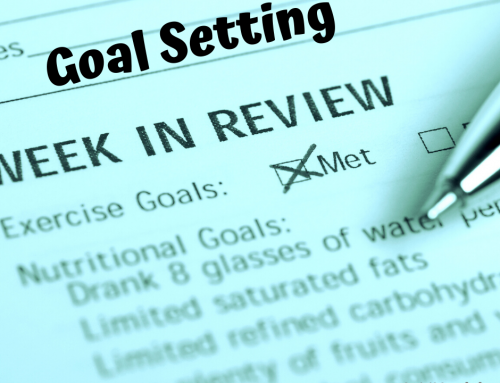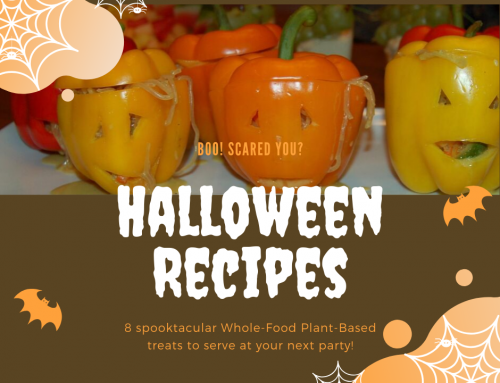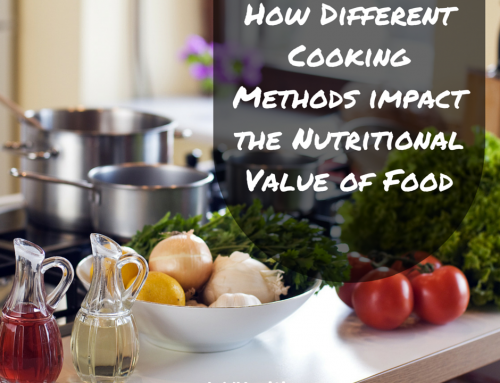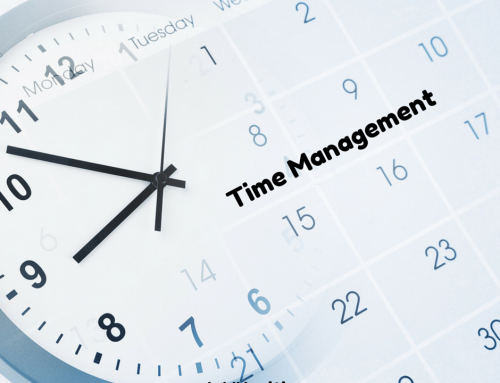Wellness Books Worth Reading.
The wellness books mentioned in this article are some of my favorites. Over the years, my health journey has taken me into several different directions. Before I got really serious about health and nutrition, I tried several of the fad diets with mixed results. I always lost weight but willpower only gets you so far and I always gained it back and some.
New books and research articles are coming out every day and I do believe that we never stop learning. So things might change. But the 10 wellness books highlighted in this article will provide you with a great start on your wellness journey.
If you are interested in one of these books, just select the book image and you will jump to the respective page on Amazon. A great way to start your wellness library or wish list with all these wellness books!
How Not To Die
Michael Greger, M.D.
There is a reason that Dr. Michael Greger’s book “How Not To Die” is at the top of my list. I have read it almost 3 times now and I still use it as a reference on multiple occasions. This book is divided in two parts. Part 1 explores the science that demonstrates the role a plant-based diet rich in certain foods may play in helping to prevent, treat, and even reverse the 15 leading causes of death. If you are already struggling with one of these diseases, just reading one of these chapters will already provide you with potential lifesaving information.
Part 2 is a much easier read and this is where Dr. Michael Greger provides you with the insights on what he eats every day. Part 1 that describes the leading causes of death in the US are as follows:
- Coronary heart disease
- Lung diseases (lung cancer, COPD, and asthma)
- Iatrogenic causes (or how not to die from Doctors)
- Brain diseases (stroke and Alzheimer’s)
- Digestive cancers (colorectal, pancreatic, and esophageal)
- Infections (respiratory and blood)
- Diabetes
- High blood pressure
- Liver disease (cirrhosis and cancer)
- Blood cancers (leukemia, lymphoma, and myeloma)
- Kidney disease
- Breast cancer
- Suicide
- Prostate cancer
- Parkinson’s disease
While there is a pill (or different treatment) for every ill, you will quickly realize that one diet will help you with most of these diseases. If you are going through one of these diseases, you will want to focus on including certain foods that are all described in the respective chapters. This is what I would call the healing diet version of a whole food plant based diet. After you are in remission or if you just want to incorporate a healthier lifestyle, you would want to follow the maintenance version of a whole food plant based diet.
The China Study
T. Colin Campbell, PhD. and Thomas M. Campbell, M.D.
What fascinates me about “The China Study” is the amount of time, resources and effort this research has taken. The New York Times called it the grand prix of epidemiology. The idea for this 20-year study began in 1980–81 during discussions between Dr. T. Colin Campbell at Cornell and Dr. Chen Junshi, Deputy Director of Institute of Nutrition and Food Hygiene at the Chinese Academy of Preventive Medicine. In 1983 two villages were chosen at random in each of 65 rural counties in China, and 50 families were chosen at random in each village. The dietary habits of one adult member of each family were examined — half male, half female — and the results compared to the death rates in those counties from around 48 forms of cancers and other diseases during 1973–75.
The findings in this book demonstrate that a good diet is the most powerful weapon we have against disease and sickness. The authors conclude that people who eat a whole food, plant-based diet – avoiding all animal products, including beef, pork, poultry, fish, eggs, cheese, and milk, and reducing their intake of processed foods and refined carbohydrates – will escape, reduce, or reverse the development of numerous diseases.
Protein Aholic – How our obsession with meat is killing us and what we can do about it
Garth Davis, M.D.
While you can probably guess the main topic of this book – PROTEIN – it also provides a great description on how you can tell fact from fiction. With the internet at our fingertips, it is difficult to weed through the information overload. In addition nutritional science is probably the only science where you can find complete opposing opinions on a given topic or food group.
The research process that Dr. Garth Davis describes in his book, is as follows:
- Never believe anything you find in a newspaper, magazine, blog, or TV or radio story.
- Never trust a single source in isolation.
- Consider the source.
- Consider the study design (randomized controlled clinical trial (RCCT) is widely assumed to be the “gold standard” of research).
- Question the choices of statistical analysis – Mark Twain’s phrase about the three main kinds of falsehoods (“lies, damn lies, and statistics”) has never been truer than in nutritional studies.
- Are they doing real science?
- Do the findings make sense in the real world?
I think Dr. Garth Davis is in a unique position. He is a general surgeon who specializes in medical and surgical weight loss. Because of this, he gets to see how diet works in real life with real people over months and years.
The Cheese Trap – How breaking a surprising addiction will help you lose weight, gain energy, and get healthy
Neal D. Barnard, M.D. FACC.
Of all the different animal products I ate throughout my life, cheese was the most difficult to give up. Looking back, I did not realize how often I used cheese on sandwiches, in sauces, on food or just as a snack. I love to open a great bottle of wine and I would serve it with a plate full of exotic cheeses. Being originally from The Netherlands probably did not help giving up this addiction. Because growing up, cheese was everywhere and I even spent a lot of my vacations as a teenager working on a dairy-farm.
Dr. Neal Barnard will give you multiple reasons why you should exclude cheese from your diet. And if you are like me, his graphical descriptions on how cheese is made, did help me skip the cheese each time it was in arms reach. The other thing you might not know, is how much saturated fat, cholesterol, salt and calories you consume by eating cheese. Not to mention the natural and artificial hormones, antibiotics, concentrated dairy proteins (casein), manure and pus – yes you are reading this right!
Keep on reading, wellness book #5 is next!
Finding Ultra – Rejecting middle age, becoming one of the world’s fittest man, and discovering myself
Rich Roll.
The next two books: “Finding Ultra” and “Thrive” are the ones that I went through when I dusted off my road bike in early 2014. Both are very inspirational, especially the story that Rich Roll went through. Rich was turning 40, almost 50 pounds overweight and his sedentary lifestyle made it almost impossible to climb the stairs without stopping. I think a lot of us can relate to this and I found myself in the same situation at the age of 46.
Plunging into a new way of eating that made processed foods off-limits, that prioritized plant nutrition, and vowing to train daily, Rich morphed – in a matter of mere months – from an out-of-shape midlifer to an endurance machine. If you find yourself in the same situation as I did, reading this book might provide you with the inspiration you need to get started on a healthier journey.
Thrive – The Vegan Nutrition Guide to Optimal Performance in Sports and Life
Brendan Brazier.
You probably do not realize that becoming more active and exercising will add stress to you body. Especially when you just get started. When I realized that the only way I could improve myself on the bike, was through exercising more and recovering faster, this book provided me with some great information. You might tell yourself that you want to exercise more. But when the couch becomes your best friend after a bike ride. And you wake-up the next morning with aches and pains, how do you do it?
For most athlete’s and your average person that wants to excel in his or her sport, little thought is given to recovery. Brendan Brazier in his book “Thrive”, provides you with the information that food can be the answer. High quality, nutrient-dense, alkaline-forming, easily digestible food in proper proportions will help you improve and recover faster from the stresses put on your body.
Brendan is a former professional ironman triathlete (1998–2004) and he is the creator of the Vega line of food products. He is regarded as one of the world’s leading authorities on plant-based performance nutrition, and therefore works with several NHL, NFL, MLB, UFC, and Olympic athletes. Brendan now invests in and works with socially responsible food & tech companies whose mandate is to fix our food system and reduce the environmental strain of food production.
Becoming Vegan – The Complete reference to Plant-based Nutrition
Brenda Davis, R.D. and Vesanto Melina, M.S., R.D.
While the first chapter talks about how a non-vegan diet impacts the animals, the environment and the planet we live on. The remainder of the book guides you through WHY a vegan diet provides tremendous power for your health. I can drink beer and eat chips all day and call myself a vegan. That is why I prefer to call it a Whole Food Plant Based (WFPB) or a diet for nutritional excellence to reference the fact that I follow this path to eat the best I can. In this book you will see references to studies between vegans, vegetarians and meat eaters. Keep in mind that these are not always your healthy vegans. Meaning there is still a lot of room for improvement. Still this book will provide you with a lot of information on the different biomarkers and the macro – and micronutrients. A great read but also a great reference book to have.
Integrative Nutrition
Joshua Rosenthal.
Joshua Rosenthal is the founder and director of the Institute for Integrative Nutrition. He has been working in the nutrition field for more than 25 years. Joshua is also the driving force behind the school. He teaches at the school alongside top leaders in the nutrition and wellness fields.
In 2015 I became a certified Integrative Nutrition Health Coach. I am adding this book to this list for multiple reasons. First, it is the only school that teaches over 100 different dietary theories and several are highlighted in this book. Second, while for some going cold-turkey is the best approach when it comes to giving up certain foods, for others crowding out might be a more sustainable solution. Crowding out and bio-individuality are being described at length in this book. Bio-individuality is the idea that each of us has unique food and lifestyle needs.
My health coaching is around a Whole Food Plant Based lifestyle and still based on several principles and a lot of other information that is being provided in this book. In addition I try to make it fun and rewarding when I coach my clients through their dietary changes. The recipes on my website help me with this process but also the following two books will provide you with lots of nutritional meal options.
Forks over Knives, The Cookbook
T. Colin Campbell, PhD, and Caldwell B. Esselstyn M.D.
As a Certified Profesional Plant-based Chef and a Certified Forks over Knives (FOK) Chef, I love to browse through the plant based recipes in this book. The FOK way of cooking, is to eliminate oils and salt during the cooking process and to use whole plant-based foods. It might not be easy at first to cook this way, but implementing these recipes will be health beneficial to a lot of people.
While several other books listed above include healthy recipes, I like the simplicity of the recipes in this book or on the FOK website. In addition, these recipes are delicious and will make you forget about the prominent place animal food has taken on a lot of our plates.
Engine 2 Diet
Rip Esselstyn.
The last wellness book I want to highlight. This wellness book is closely related to FOK, because Rip is the son of Dr. Caldwell Esselstyn, the co-author of Forks over Knives. Rip is a professional athlete-turned-firefighter and used a plant-strong diet with his fellow Engine 2 firefighters in Austin, Texas. Doing so, he was able to lower their cholesterol, have them loose wight and improve their overall health.
More than 100 recipes that are all based on vegetables, fruits, whole grains, legumes, nuts, and seeds are included in this book.
Get these Wellness Books on you reading list!
I hope that the short descriptions of these books have inspired you to read one or even several of them. While there are a lot of wellness books out there, not all of them are based on science. Some of them only take one component in consideration and ignore several other scientific findings. Even with the knowledge in these books, nutrition can still be very confusing. Don’t worry, I’m here to help, feel free to contact me to discuss what options are available.




















Leave A Comment